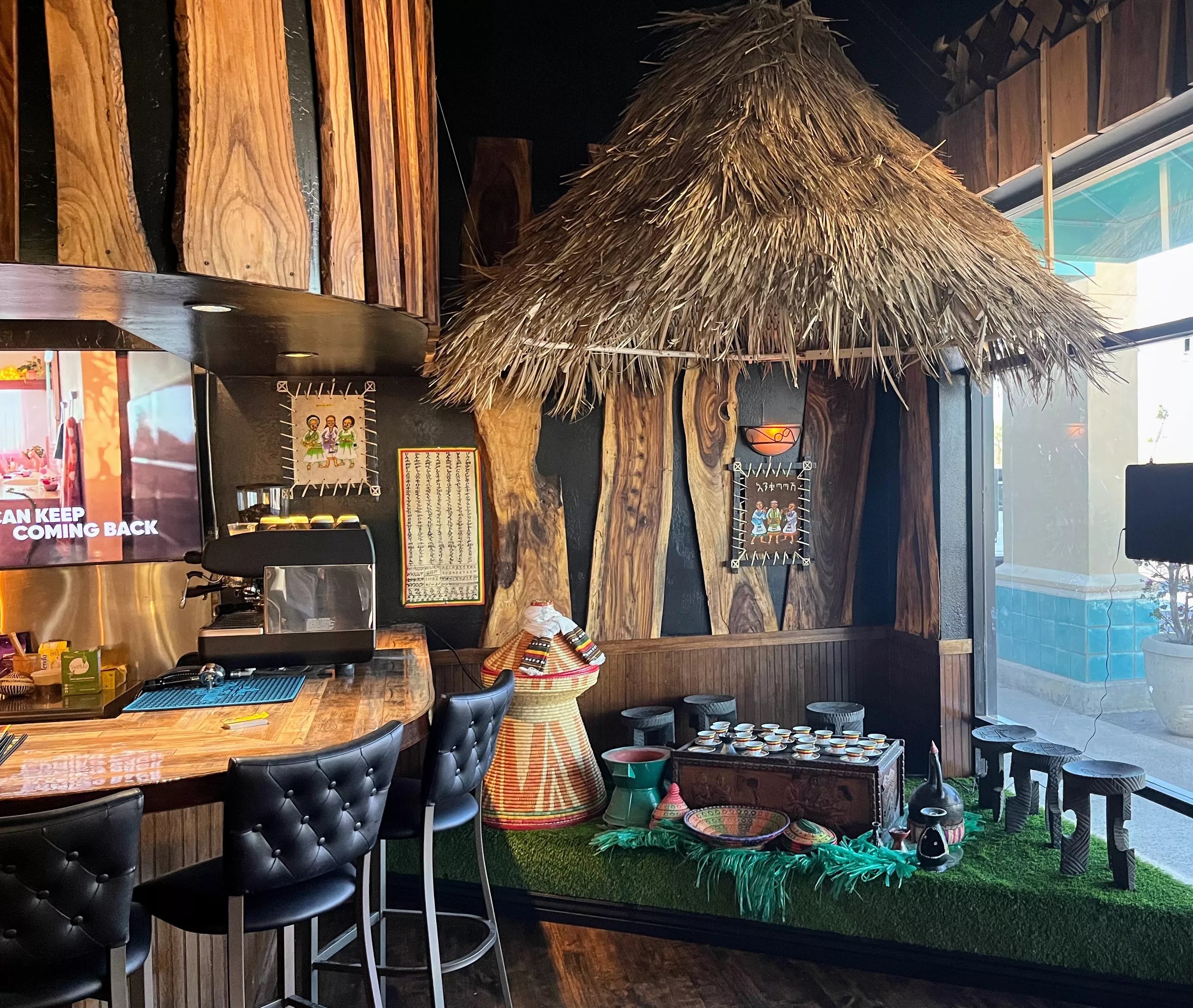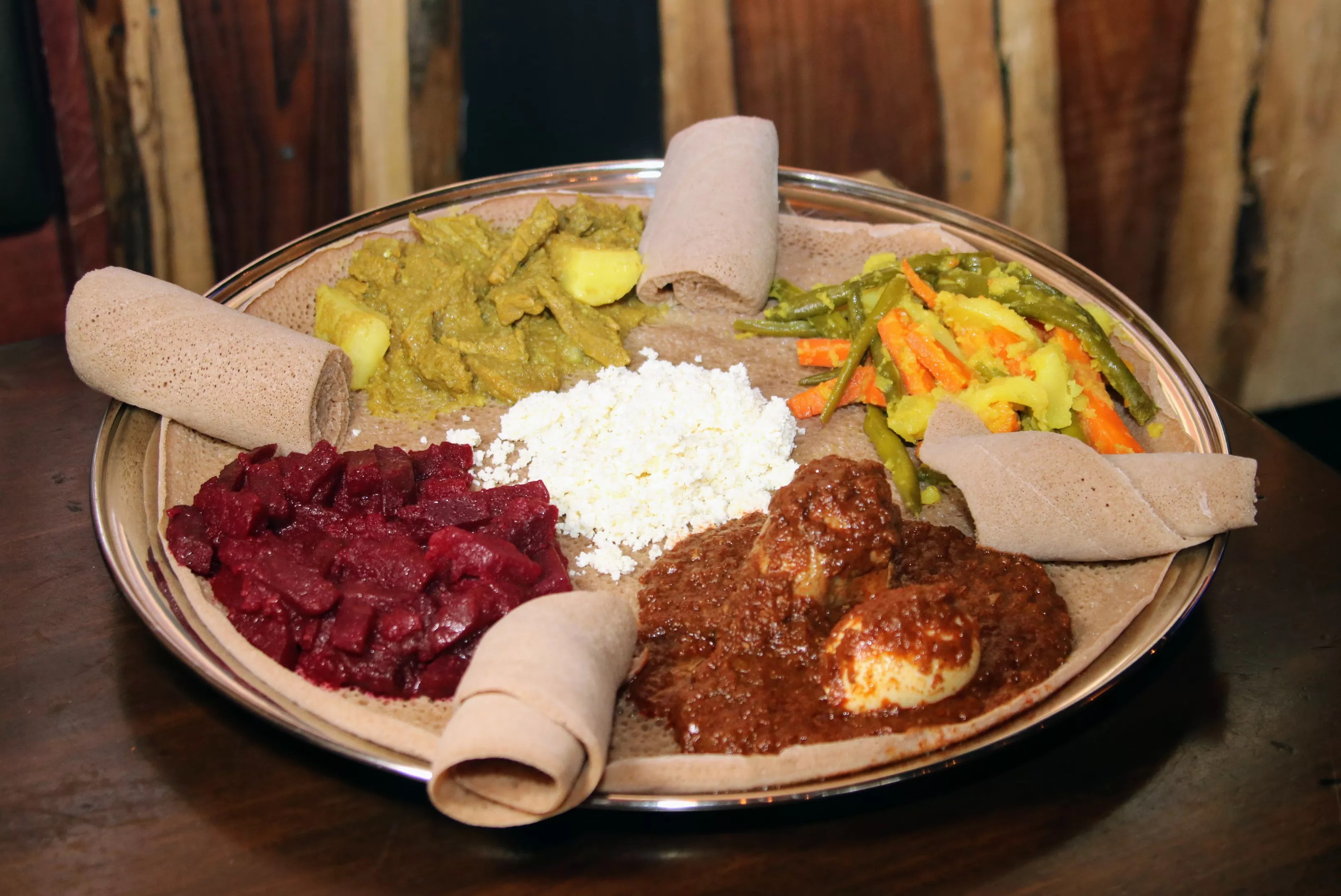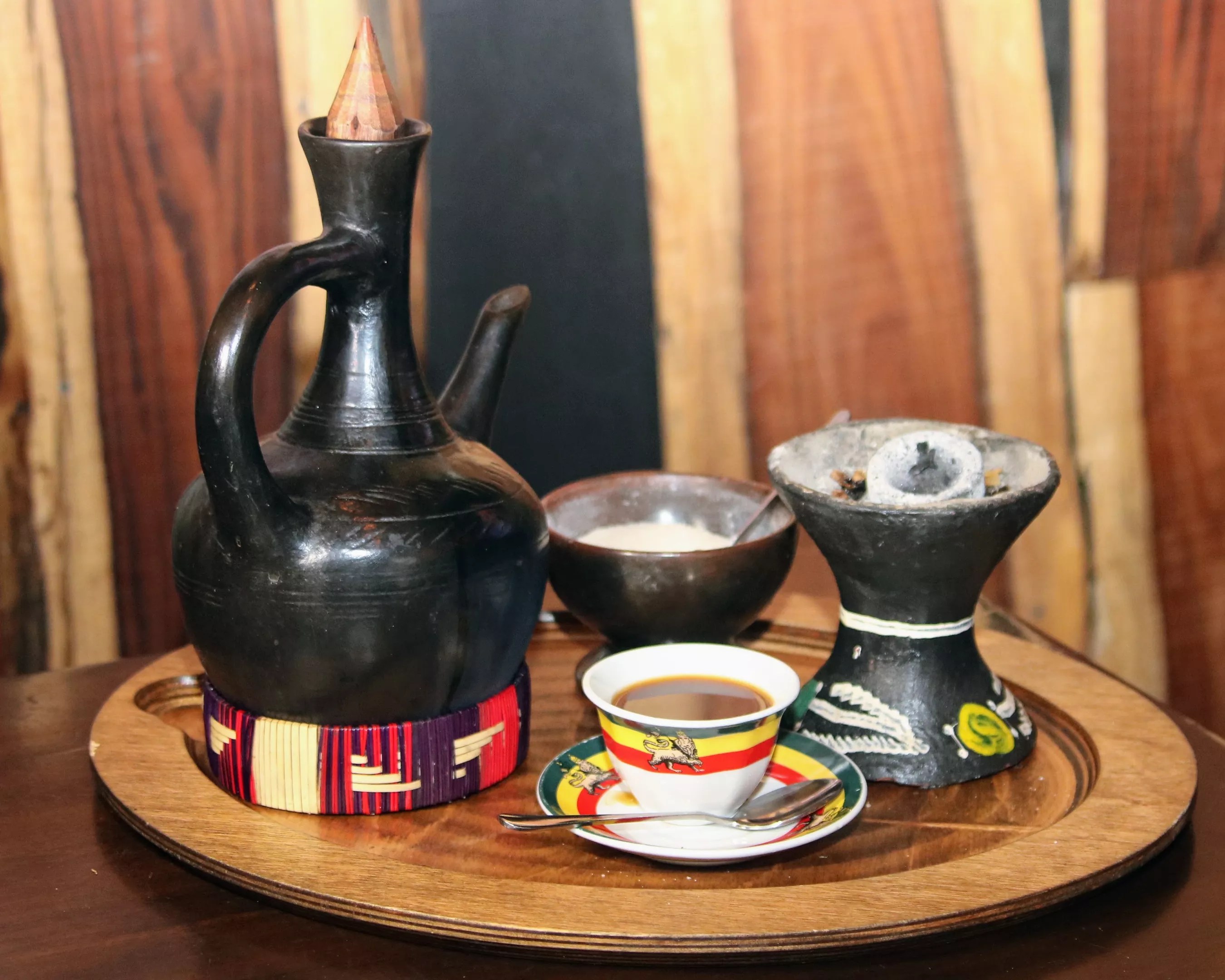
Mike Madriaga

Audio By Carbonatix
In 2012, in a modest 650-square-foot nook near downtown Phoenix, Anduale Hassan and Elsabet Tiruneh launched Authentic EthioAfrican with a pair of tables and a deep passion for Ethiopian flavors.
Thirteen years later, their concept is blossoming with the debut of a new restaurant and an expansion in the works.
The original space, located on McDowell Road and 18th Street near downtown Phoenix, has undergone a significant renovation. By mid-March, the owners hope to add a retail bakery producing desserts and injera, a new breakfast menu and a community center for events.
As if that expansion weren’t enough, the family also opened a second Authentic EthioAfrican in Scottsdale on Jan. 23.
“We wanted to share our culture here in Scottsdale and North Phoenix,” Hassan says. “In Scottsdale, we don’t have any Ethiopian food, and it’s a tourist destination. That’s why we chose this place.”

At both restaurants, diners are greeted by a Habesha coffee ceremony display. The setup features a low table, ornate stools, handmade pots and matching small coffee cups.
Mike Madriaga
Authentic EthioAfrican opens in Scottsdale
The new restaurant, located on the corner of Hayden and Indian Bend roads, mirrors the vibe of the flagship location. African jazz fills the air while imported Ethiopian decor sets the scene.
Striking art, African musical instruments and curtains fashioned from Ethiopian fabrics were all personally sourced by Hassan during a recent trip to Ethiopia.
“All those art pieces are made from cowhide; an artist there did that for me. We try to express traditional art in a way that reflects our culture,” he explains.
Mesquite lumber accents and matte-black walls soaring to 30-foot ceilings with stainless-steel ceiling fans add to the modern yet traditional ambiance. Near the entrance, a section of a straw hut features an ornate ceremonial coffee display, inviting guests to partake in a truly immersive experience.
The massive bar – once a sushi bar of the former tenant – now serves cocktails with an Ethiopian twist.
“Instead of using simple syrup in our drinks, we use baklava syrup and spice the glass rims with mitmita,” Hassan says. Mitmita is a reddish-orange spice blend made with cloves, chile, cardamom, korarima and salt.
“We even have a coffee martini that’s become really popular, made with our own roasted Ethiopian coffee,” Hassan adds.

The injera’s porous texture absorbs all the rich sauces and spices of the different stews placed on top.
Mike Madriaga
The food menu features the same scrumptious, handmade recipes from the McDowell Road restaurant, served atop the signature spongy injera.
The Duro Wot Key is among the fan favorites, and it is a traditional chicken stew that evokes memories of Hassan’s childhood in Addis Ababa.
“I remember eating this when I lived in the capital of Ethiopia,” he recalls.
The spicy stew – slow-cooked for eight hours with simmered onions, garlic, ginger and a robust berbere sauce – is served with a hardboiled egg and a side of cottage cheese, making it an ideal introduction for newcomers to Ethiopian cuisine.
Tibs is another must-try dish. Marinated, cubed meat is sauteed at high heat with spices, onions, peppers and rosemary. Diners can choose between lamb, chicken, fish or beef.
For fans of traditional fare, the menu also features Kitfo, finely minced lean beef mixed with butter and marinated in mitmita.
Other standout dishes include the restaurant’s vegetarian options. Hassan highlights the Vegetarian Combo with 10 sides. A large injera is decorated with dollops of spicy chickpeas, lentils, garlicky collard greens and tomatoes.
“Right now, many people are health- and diet-oriented and want something plant-based,” he says, noting “almost 80% of our menu is plant-based.”
Another charm of the dining experience is how the food is consumed. Rather than relying on forks, spoons or knives, guests use the injera – tearing off pieces with their fingers to scoop up the various dishes. The bread’s porous texture absorbs the rich sauces and spices.
“I was surprised to see a 5-year-old come in and clean my vegetarian dishes, eating the chickpeas and cabbage like an adult,” Hassan says. “It brings me to tears, knowing we can appeal to even first- and second-graders who visit with their families.”

Ethiopian coffee is infused with spices and served from a traditional coffee set at Authentic EthioAfrican.
Mike Madriaga
Expanding the original Phoenix restaurant
Back at the original restaurant in Phoenix, renovations are underway. Hassan secured leases for the surrounding spaces – which once housed a sushi restaurant, a barber shop and a cafe – to expand operations.
Part of the new space will be used as a bakery to produce dessert and injera. The fermented bread has become a hot commodity, Hassan says.
“Our injera has become really popular,” Hassan says. “Our community – and even others – are buying it and cooking at home.”
Recognizing the demand, Hassan and Tiruneh are working to open a bakery selling injera along with their popular teff carrot cake with cream cheese, walnut baklava and tiramisu.
Then, expanding into the former coffee shop in their building, the couple says they will continue serving their signature coffee and tea throughout the day.
“In Ethiopia, serving coffee is our signature,” Hassan says. “It’s like espresso, but not as strong (and) infused with a unique blend of spices.”
At both of the family’s restaurants, diners are greeted by a Habesha coffee ceremony display. The setup features a low table, ornate stools, handmade pots and matching small coffee cups, some adorned with the country’s red, yellow, and green colors.
Typically, the coffee ceremony lasts two hours or more, during which the host grinds, brews and pours the coffee while sharing stories with visitors. However, Hassan and Tiruneh have streamlined the process. They now serve the coffee while briefly introducing the ceremony and answering any questions.
Following the rich coffee experience, the newly renovated Phoenix location will serve a breakfast menu brimming with traditional favorites. In the morning, guests can savor Chechebsa, thin slices of bread with spiced butter; Foul, fava beans cooked with spices, diced onions, tomatoes and peppers served with pita or white bread; a variety of Inkulal Fir Fir scrambled egg dishes with vegetables and an option of ground beef or tuna; and Fetira, a layered flatbread with eggs and honey.
Beyond food and drink, Hassan and Tiruneh are committed to building a community space that echoes the vibrant cultural hubs of Ethiopia. Their renovated space will soon serve as a community center for events, a project inspired by Hassan’s experiences in Addis Ababa.
“I want my people to feel welcome in our new place,” Hassan says.
Their ambitious expansion blueprint doesn’t stop here. With plans to open new locations in other parts of the Valley in the next five years, the couple envisions a future where Authentic EthioAfrican’s signature concept reaches as many communities as possible.
From its humble beginnings in 2012 to its current status as a multi-concept cultural hub, Authentic EthioAfrican is much more than a restaurant – it’s a living celebration of Ethiopian heritage. Through innovative cuisine, immersive decor and a deep commitment to community, Hassan and Tiruneh continue to share a taste of home with every customer.
Authentic EthioAfrican
1740 E. McDowell Road
6989 Hayden Road, Suite A12, Scottsdale